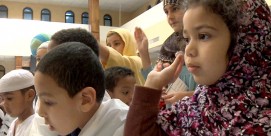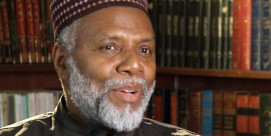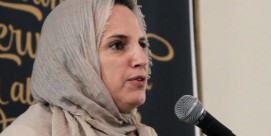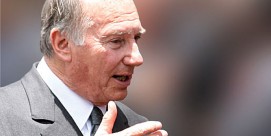In This Episode << SLIDE LEFT TO SEE ADDITIONAL SEGMENTS
Obama and the Muslim World
[myplaylist=20]
DEBORAH POTTER, guest anchor: President Obama has added a stop in Saudi Arabia to his upcoming trip to the Middle East and Europe. He’ll meet with King Abdullah in Riyadh on Wednesday (June 3). Obama then will fly to Egypt where he’ll make what’s being called a major speech directed to the Muslim world. What will the president say? We asked Democratic Congressman David Price of North Carolina, a graduate of Yale Divinity School, what he expects to hear.
Congressman DAVID PRICE (D – NC, 4th District): I would expect some thoughtful reflections about Christianity, Judaism, Islam, other world religions, the kind of values they share, the kind of dialogue that he hopes can take place among them, and also their dangers to being distorted for prideful and chauvinistic ends.
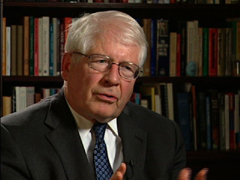 Congressman David Price (D-NC) |
We may well hear some reflections on mistakes we’ve made in the Arab world, on the treatment of detainees, for example, our failure sometimes to be true to our own values in terms of dealing with autocratic regimes and human rights in the region.
We have some things that we need to let our Arab friends know that we expect. We expect a commitment to human rights and a renunciation of terrorism and violence. We expect cooperation in securing regional peace agreements — nowhere more than in Egypt, where the mediation role in the region and in the Israeli-Palestinian dispute is of absolutely critical importance.
The Obama administration is in a position to reassert the American role in Middle East peacemaking as a friend, an ally of Israel and as a country absolutely committed to Israel’s security, but also as a friend to the legitimate aspiration of the Palestinians and as a champion of a two-state solution where the states can live side by side in peace and mutual security.
There’s a huge stake — an American stake, an Israeli stake, a Middle Eastern stake in Iran renunciating nuclear weapons capability, but beyond that Iran becoming a positive and constructive partner in the economic and political life of the region. The Obama administration has quite explicitly served noticed that we’re now on a different path. It’s a cautious path, a path of openness which is going to require reciprocation from the Iranian side.
President BARACK OBAMA (from speech in Turkey): Iran’s leaders must choose whether they will try to build a weapon or build a better future for their people.
Congressman PRICE: Often we understand and need to understand in our discussions with one another that our deepest values, our commitments do have religious roots.
It brings of course a valuation of peace and peacemaking — not peace at any price but peace based on justice, and I think what also Obama understands, and this is maybe another level of understanding that one doesn’t always find, a sense of humility that also has a religious undertone, that we recognize that we’re fallible and that national causes are not to be identified in any kind of unequivocal way with God’s will.
We want our country to realize its ideals, but we also understand that our country exists in a world with other countries and other peoples and that they too are God’s children and they too have a kind of entitlement to a place on the earth and to our respect.
I think these religious traditions have power and a kind of compelling quality in their own right, and so I think we’re duly challenged to articulate what these values are and to try to live by them.

